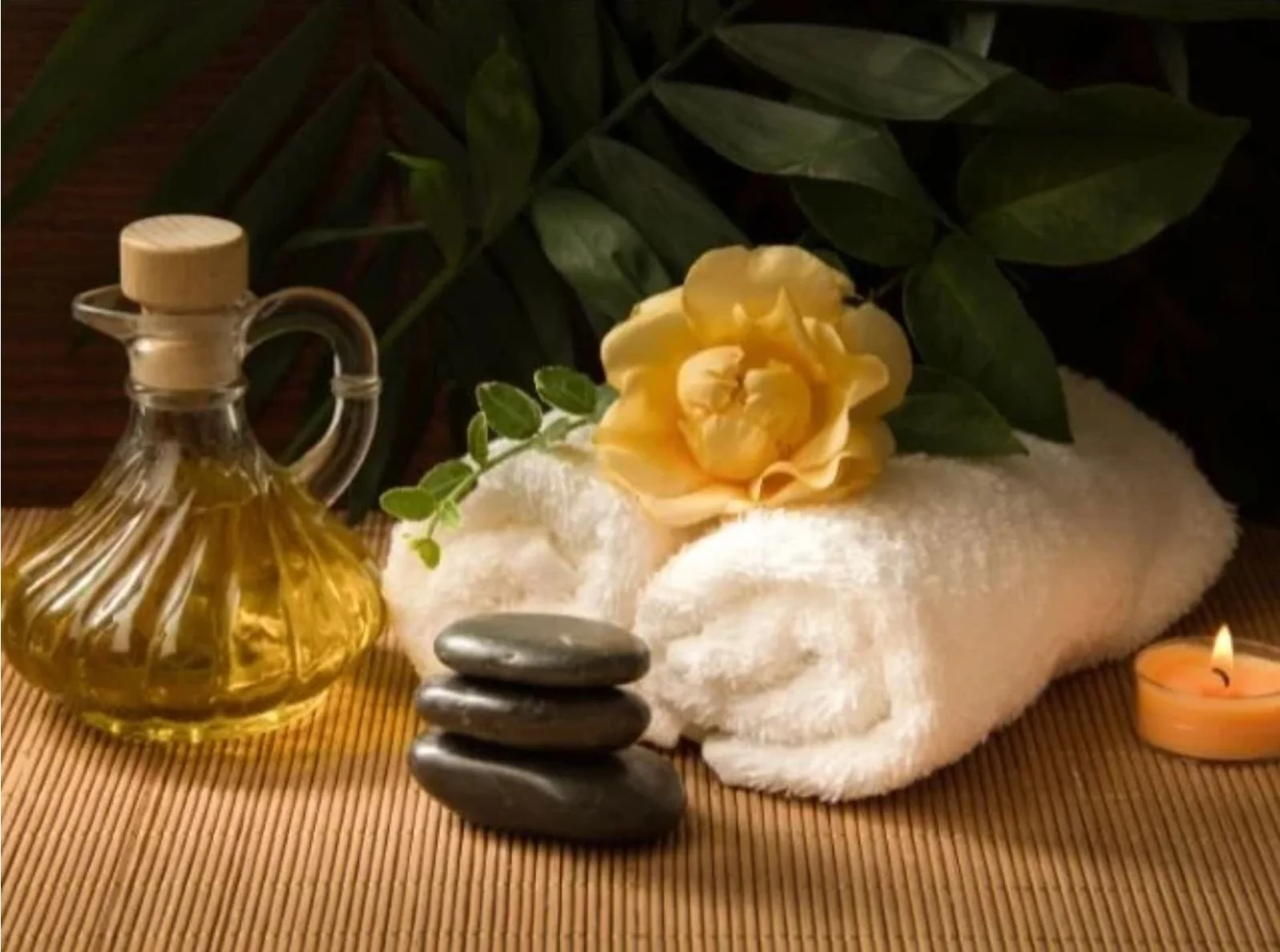
Stress Relief & Self-Care
Stress happens. Here’s your map to handle it with steadier mornings, gentler habits, and simple resets you can actually maintain.
Explore the guides below by topic—learn what stress does to your body, spot burnout early, build realistic self-care routines, set digital guardrails, and nourish your energy.
The Key to a Calmer, Healthier You
Evening Routines - Coming Soon
Digital Wellness - Coming Soon
Stress Responses: How Your Body Reacts to Stress
Not all stress looks the same.
Your body instinctively reacts to pressure or threats in different ways—commonly known as the Five Stress Responses: Fight, Flight, Freeze, Fawn, and Flop.
Recognizing how you respond to stress is the first step toward managing it effectively.
Understanding Stress Impacts
Stress affects the body in more ways than we realize. It can lead to fatigue, anxiety, sleep disturbances, and even serious health problems like high blood pressure and weakened immunity. Understanding what triggers your stress is the first step in managing it effectively.
Best Stress Relief Techniques
Mindful Breathing & Meditation
Exercise & Movement
Journaling for Mental Clarity
Progressive Muscle Relaxation
Morning Routines & Rituals
When your first 10 minutes are predictable, your brain spends less energy firefighting.
Regulate: light + breath settle your system so you don’t start in overdrive.
Protect: a short Do-Not-Disturb window = healthy boundary before pings.
Simplify: “One Thing” planning reduces decision fatigue and scattered effort.
What you’ll find: gentle wake-ups (sunrise alarms), mindful coffee ritual, 4–6 breathing, student-friendly routines, a printable morning checklist, productivity helpers (timers, One-Thing), cozy gear (travel mugs, must-haves), and science-backed routines you can actually keep.
Why morning rituals matter for stress & burnout
Burnout and Chronic Stress
Stress is a normal part of life, but when it becomes chronic, it can lead to burnout—a state of emotional, mental, and physical exhaustion.
Recognizing the early signs can help you take action before stress takes a toll on your well-being.
Key Warning Signs:
Persistent Fatigue – Feeling drained even after rest, struggling to find motivation.
Irritability & Mood Swings – Becoming easily frustrated, impatient, or overwhelmed.
Cognitive Fog – Difficulty concentrating, forgetfulness, or constant mental exhaustion.
Physical Symptoms – Frequent headaches, digestive issues, or muscle tension.
Loss of Enjoyment – Activities that once brought joy now feel like a burden.
Increased Anxiety or Hopelessness – Feeling like you're in a constant state of stress with no way out.
Ignoring these signs can lead to more serious health issues. Recognizing burnout early allows you to reset, recharge, and take steps toward sustainable well-being.
Daily Self-Care Practice
Self-care isn't about luxury; it's about prioritizing your well-being.
Even small daily habits—like drinking water, stretching, or taking deep breaths—can have a big impact on your stress levels.
Explore easy self-care techniques you can incorporate into your daily routine.
Practical Tools for Stress Management & Self-Care
Explore More About Stress Relief & Self-Care
Frequently Asked Questions
-
Stress is short-term overload (your system can still rebound).
Burnout is long-term depletion—exhaustion, cynicism, and reduced capacity.
If recovery breaks stop working, you may be in burnout territory.
-
Your body shifts into fight/flight/freeze/fawn. Use fast, body-first resets:
Light + breath: open blinds; breathe in 4 / out 6 × 6
Name it: “I feel ___; it makes sense.”
Move briefly: one song of stretching or a brisk 2–3 minute walk
-
Red flags: you wake tired, small tasks feel heavy, you’re irritable or checked out, and “time off” doesn’t refill your tank.
Start with gentle recovery (sleep, boundaries, tiny wins) and reduce non-essential commitments.
-
Item descriptionA simple, repeatable routine takes work off your brain and steadies your nervous system.
Predictability = calm: Light, breath, and a tiny tidy signal “safe to start,” lowering reactivity.
Fewer decisions: Pre-decided steps cut morning chaos and decision fatigue.
Built-in self-care: Small wins (hydrate, move, one clear plan) happen automatically, which protects against burnout.
Quick start: Try the Morning Reset challenge
-
Nope. Self-care doesn’t have to mean spa days or weekends away (though those are nice).
It can be as simple as a five-minute walk, a short mindfulness reset, or saying “no” when you’re stretched too thin.
-
Mindfulness gives your brain a pause button. It helps you notice what’s happening in the moment instead of getting lost in worry or “what ifs.”
Even a single deep breath or quick meditation can lower stress and help you reset.
-
Try a 60-second mindfulness reset, a short stretch, or writing down what’s on your mind.
Small resets break the stress cycle and help you return to your day with more focus and calm.
-
Because we’ve been taught to see self-care as selfish. The truth?
Taking care of yourself means you have more energy, patience, and focus for the people and things you care about most.
Self-care isn’t selfish—it’s necessary.
-
Use visual timers, body-doubling (get-ready playlist/podcast), movement-first mornings, and low-friction tools (set-out clothes, filled water bottle).
Keep steps short and sensory-friendly.
A Week of Self-Care, Just for You
Feeling overwhelmed? Stressed? Stuck at the bottom of your to-do list? It’s time to change that. Join the free 7-Day Self-Care Challenge and start building simple, effective habits that help you feel calmer, more energized, and in control—without the guilt.
One small habit a day. A lasting impact on your well-being.




















